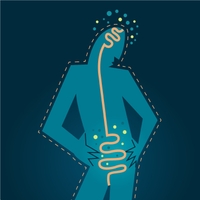
Update on dementia risk factors
Dementia is any decline in cognition that is significant enough to interfere with independent, daily functioning (1) and is characterised by progressive memory loss (2).
Dementia affects approximately 47 million people worldwide (3) and is expected to more than triple by 2050, particularly in low and middle-income countries (LMIC), which are home to approximately two-thirds of global dementia cases (4).
According to a recent report by the Lancet Commission on dementia prevention, intervention and care, modifying 12 risk factors over a lifetime could delay or prevent 40% of dementia cases (4). The commission conducted a systematic literature review, meta-analyses and individual studies to reach their conclusion. They evaluated new evidence on dementia risk in LMIC, risks and protective factors for dementia, multimorbidity in dementia, detection of Alzheimer’s disease and interventions for people affected by dementia (4).
The majority of the available evidence is from studies in high-income countries (HIC); therefore LMIC are under-represented. Risk factor prevalence varies between countries, and interventions might require modification for different cultures and environments.
The commission has added three new dementia risk factors:
- excessive alcohol intake
- head injury in mid-life
- air pollution in later life
These are in addition to risk factors previously identified in their 2017 report (4):
- Less education early in life
- Mid-life hearing loss
- Hypertension
- Obesity
- Smoking
- Depression
- Social isolation
- Physical inactivity
- Diabetes in later life (65 years and up)
The report further commented that tactics to avoid dementia begin early and continue throughout life. Women are also more likely to develop dementia than men, given they live longer (4).
The proportion of older persons with dementia has fallen in some countries, such as the United States, England and France, likely due in part to lifestyle changes, demonstrating the possibility of reducing dementia through preventative measures (4).
Currently, evidence suggests that a Mediterranean or Scandinavian diet might have value in preventing cognitive decline in people with intact cognition, particularly as one component of a healthy lifestyle, although how long the exposure has to be and during which ages is unclear.
In older persons without dementia, hospital admission for any cause resulted in more than doubled rate of cognitive decline compared to those not admitted, suggesting any severe illness is associated with cognitive decline.
The following interventions are recommended to reduce the risk of dementia (4):
- Aim to maintain systolic blood pressure of 130 mm Hg or less from the age of 40.
- Encourage the use of hearing aids for hearing loss and reduce hearing loss by protecting ears from high noise levels.
- Reduce exposure to air pollution and second-hand tobacco smoke.
- Prevent head injury (particularly by targeting at-risk groups).
- Limit alcohol intake to no more than 21 units per week (one unit of alcohol equals 10 ml or 8 g pure alcohol).
- Stop smoking and support others to stop smoking.
- Provide all children with primary and secondary education.
- Lead an active life in both mid and later life.
- Reduce obesity and associated diabetes.
Excessive alcohol intake
It has been known for centuries that heavy drinking is associated with brain changes, cognitive impairment, and dementia. There is increasing evidence regarding the complex relationship between alcohol and cognition and dementia outcomes from a variety of sources, including detailed cohort and large-scale record-based studies (4). Alcohol use is strongly associated with cultural patterns and health-related factors, which makes understanding the evidence base a challenge (4).
A 5-year longitudinal study of over 31 million hospital admissions found alcoholism was associated with increased dementia risk, particularly earlier onset dementias (age less than 65 years) in which 56.6% had an alcohol use disorder noted (4).
A systematic review encompassing 45 studies of light to moderate drinking reported a reduced risk of dementia compared with not drinking (4).
Drinking less than 21 units of alcohol per week (1 unit of alcohol = 10 mL or 8 g pure alcohol) might be associated with a lower risk of dementia. Drinking more than 21 units per week and long-term abstinence were both associated with a 17% increase in dementia compared to drinking less than 14 units per week. Drinking more than 14 units was also associated with right-sided hippocampal atrophy on MRI.
Traumatic brain injury
Traumatic brain injury (TBI) is a non-degenerative, non-congenital insult to the brain from an external mechanical force, leading to possible permanent or temporary impairment of cognitive, physical and psychosocial functions, with an associated diminished or altered state of consciousness (5). Some of the terms used in the report include head injury, Parkinson’s disease, neurodegeneration and Alzheimer’s disease (4).
TBI is usually caused by car, motorcycle, and bicycle injuries, falls, boxing, horse riding, and other recreational sports.
Different causes of TBI, for example, car accidents, head trauma and falls, are associated with different types of cognitive impairment (6).
A nationwide Danish cohort study of nearly 3 million people aged 50 years or older, followed for a mean of 10 years, found an association between TBI and increased risk of dementia, particularly nearer the time of the TBI, leading to early onset Alzheimer’s disease for some people (4,7). There was a dose dependent relationship with regards to TBI severity and the number of TBIs.
A cohort study of 28,815 older adults with concussion, found that concussion doubled the risk of dementia, with 1 in 6 developing dementia over a mean follow-up of 3.9 years (4). Individuals taking statins had a 13% reduced risk of dementia compared to those who were statin-free. Further studies are required, investigating the effect of statins on mitigating injury-related brain oedema, oxidative stress, amyloid protein aggregation and neuroinflammation.
Air pollution
Air pollution and particulate pollutants are associated with poor health outcomes, with emerging research focussing on their potential effect on the brain (4).
Animal models suggest airborne particulate pollutants accelerate neurodegenerative processes via:
- cerebrovascular and cardiovascular disease
- Aβ deposition and
- amyloid precursor protein processing
High nitrogen dioxide (NO2) concentration, fine ambient particulate matter (PM)2.5 from traffic exhaust and PM2.5 from residential wood burning are associated with increased dementia incidence (4). A systematic review of studies including 13 longitudinal studies with 1 - 15 years follow-up of air pollutants exposure and incident dementia found exposure to PM, NO and carbon monoxide were all associated with increased dementia risk (4).
Conclusion
The available evidence is insufficient to determine if having multiple risk factors has an additive or synergistic effect. It is noted that association does not prove causation; however, the reductions in prevalence and incidence in several HIC suggests that at least some of the risk factors estimated here do have a causal relationship with the clinical expression of dementia. Reduction of these risk factors might be protective for people with or without a genetic risk, although study findings are inconsistent.
For some risk factors, the pattern of risk and the individual’s other health conditions, both physical and mental, might be especially important.
Knowledge about risk factors and potential prevention, detection, and diagnosis of dementia is improving although significant gaps remain.
The commission report has specified policy and individual changes aimed at delaying the onset of dementia and cognitive impairment, preferable ways to support and treat people with dementia and their families, and to improve their quality of life.






